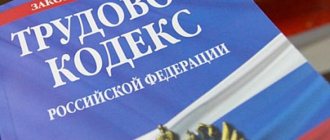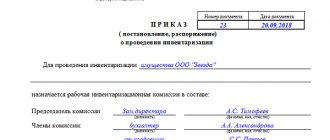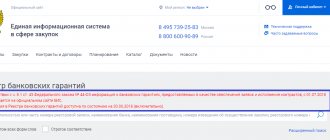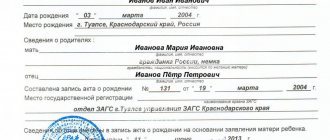Competitive bidding
Competitive bidding is a procurement that uses competitive bids among bidders. There are the following types of trades:
- auctions;
- competitions;
- request for quotations;
- request for proposals.
Each type has its own conditions for holding and participation.
Auction
Selection method, where the customer specifies the characteristics of the contract: delivery time and initial maximum amount. The auction takes place at the time specified by the customer on the electronic trading platform . Participants submit price proposals, lowering or increasing the bid from 0.5% to 5% of the initial contract price, depending on the type of auction. The contract is concluded with the one whose bid has not been surpassed within ten minutes.
There are also open auctions without the use of electronic platforms, which are held in the presence of the customer, commission members and participants or their representatives.
Contest
A purchasing method where the customer pays attention not only to price, but also to the company’s experience, technical equipment, quality and deadlines, warranty and other parameters. At least two evaluation criteria. It takes place in open or closed form. Suppliers submit an application with price proposals once, without the opportunity to change the price. The criteria of the participants are hidden from each other. The customer selects participants and evaluates applications. The competition is won by the company that offers the most favorable terms for the sale of services to the client.
There are types of competitions with limited participation or taking place in two stages. In the first case, participants have the opportunity to submit improved proposals in the second stage. In the second, participants undergo prequalification, where the supplier’s compliance with the requirements is assessed.
Request for quotation
Used to purchase one type of product. The maximum order value should not exceed 500 thousand rubles. Applications are submitted with price proposals . The participant who offers the lowest price wins. In case of equality of price offers, the winner is the participant who submitted the application earlier than others.
Request for proposals
The customer describes the requirements for the procurement object and selects the most suitable proposal based on his needs. Participants register on a special electronic platform (ETP), where they conduct trading and in a unified information system.
Request for prices
A selection method in which applications are submitted along with price proposals, and the winner is the participant who offers the lowest contract price. In case of equality of price offers, the winner is the participant whose application was received earlier than others.
Competitive negotiations (purchases under 223-FZ and commercial purchases)
If the subject of procurement requires consultation and discussion, the organizer negotiates with participants in accordance with the requests. The customer identifies a qualified participant who offers the best terms of the transaction and enters into an agreement with him.
How to sum it up
After the publication of two protocols for consideration of applications, the electronic signature operator sends price proposals from participants in the open tender to the customer. The commission once again carefully analyzes all requests, compares them with established requirements and evaluation criteria and makes a decision.
In auction procedures, the winner is the participant with the lowest price offer - this is how an open auction differs from an open competition. In competitive procedures, the winner is the participant who offered the customer the most favorable terms for the execution of the contract (Part 14, Article 54.7 44-FZ).
The decision of the commission is documented in the final protocol. The final protocol contains the following information:
- date, time and place of document generation;
- admission or refusal for each participant;
- compliance of proposals with the requirements established by the competition documentation;
- regulations for assessing requests from performers;
- identification and serial numbers of proposals.
Identification numbers are generated automatically on the trading platform, but serial numbers are assigned by members of the competition committee. Ranking is done according to the level of profitability of each offer: the first number (aka the winner) receives the offer that fully meets all the requirements, evaluation criteria and is the most profitable. Each subsequent request receives the second, third and subsequent numbers.
Failed suppliers have the right to demand from the customer an explanation of the results of an open competition in electronic form. If you receive a request for clarification, you will have to respond within two working days (Part 16, Article 54.7 44-FZ). Publish your answer in the EIS.
Purchasing from a single supplier
Occurs in special cases when there is no competition. The customer is obliged to justify why using other methods of determining the contractor is impossible. The cost of such a tender does not exceed three hundred thousand rubles, and is classified as “Purchases in small volumes.” By order of the government of the Russian Federation, auctions are held on the Beryozka electronic platform.
Unlike competitive procurement, suppliers first place their goods and services in the service catalog. If the conditions are suitable for the customer, then a contract is concluded between the structures and the contractor becomes a participant in the non-competitive procurement.
What is this procedure
The federal contract system provides for a special competitive ordering method, when customers are guided not by price, but by quality criteria (Article 54.1-54.7 44-FZ). When announcing a purchase, the contract manager (purchase commission) sets evaluation criteria. Essentially, these criteria are quality indicators that guide the commission members when determining the winner. This is what an open competition is - a procedure designed to identify the supplier who will offer the best option for fulfilling the contract according to the conditions specified in the documentation. A competition is held if it is necessary to purchase specific goods, works and services that require special characteristics and detailed study.
How to become a participant in bidding and procurement
Legal entities and individual entrepreneurs, budget and foreign companies, self-employed and individuals can be involved in procurement. The date of establishment of the company, the taxation system and the availability of goods at the time of filing the application do not affect participation, the main thing is the appropriate criteria. Trades are held in almost all areas of business activity.
The circle of participants is limited if procurement is carried out:
- with information that is a state secret;
- technically complex goods, works or services with high scientific and technical value, where special qualifications of employees are required;
- among small businesses and socially oriented non-profit organizations;
- for licensed activities where special permits are required;
- with Russian origin of goods.
Government agencies can only work on federal portals.
What information should be included in the notice of an open tender?
The notice and procurement documentation that the customer places in the Unified Information System must contain the following information:
- information about the customer, contract terms, procurement identification code, amount of application security and contract security;
- requirements for participants and an exhaustive list of documents that they are required to provide;
- methods of obtaining documents (postal or courier delivery, e-mail), timing, place and procedure for their provision;
- place, date and time of opening of envelopes with applications;
- benefits provided for certain categories of participants (for example, for small businesses, organizations of disabled people, etc.);
- prohibitions and restrictions on the admission of goods;
- account details for transferring security payments.
If this is your first time bidding
You must obtain a specialized electronic signature. They are issued only in accredited certification centers. Then register in the Unified Information System in the field of procurement to work on federal electronic platforms. The accreditation period is 3 years. The registration scheme, the required package of documents for each type of participant and workplace setup can be obtained on the portal website in the documents section.
Federal electronic platforms:
- National electronic platform;
- Unified electronic trading platform;
- All-Russian electronic trading system;
- Russian auction house;
- TEK-Torg;
- RTS-Tender
- ETP Gazprombank.
- Sberbank-AST
The winning bidder pays a commission to the portal operator.
On sites that are not federal, separate registration will be required. Their list is extensive. Working conditions for commercial services differ and may be paid.
After registering on the trading platform, the user submits an application to participate in the selected electronic auction, fulfilling the conditions depending on the type or type of auction. The application for participation is signed electronically. However, for some auctions it is necessary to have a bid security. This means that the special account opened for these purposes must contain the amount of security specified in the procurement documentation. It is blocked after you have submitted your application and the application deadline has passed. The amount will be unlocked after the tender is completed.
An application for participation will not be accepted if:
- it contains errors or typographical errors;
- it is not signed with an electronic signature;
- the deadline for submitting documents has expired;
- accreditation on the portal expires in less than 3 months;
- a participant has submitted more than one application;
- application security was not provided.
The operator of the electronic platform confirms the application and assigns it a serial number. You can withdraw your application yourself by writing a corresponding notice to the operator.
Tender Documents and Request for Clarification
If participants have any questions about the tender documentation, they can send a request for clarification of the provisions to the operator of the electronic platform, but no later than 5 days before the deadline for submitting applications. Each supplier can submit no more than 3 such requests.
The customer responds to such a request within 2 working days.
The customer has the right to make changes to the tender documentation no later than 5 days before the deadline for submitting applications. At the same time, he must extend the deadline for accepting applications so that at least 10 working days remain.
Important: changing the procurement object and increasing the application security is not allowed.
What services will be needed
To take part in electronic trading, in addition to an electronic signature, you will need the necessary software:
- browser with support for Transport Layer Security TLS v. 1.0, RFC 5246 using Russian cryptographic standards;
- Cryptoprovider “CryptoPro CSP” with support for current requirements approved by Order of the FSB of Russia dated December 27, 2011 No. 796 and Federal Law dated April 6, 2011 No. 63-FZ “On Electronic Signature”;
- Application "CryptoPro EDS Browser plug-in".
It is better to purchase current versions of programs from an official dealer of CryptoPro brand products. Or use the service for setting up a workplace for working on electronic platforms.
Government procurement and changes in 2021
Changes to the law on public procurement are made regularly. Innovations for 2021 were published on December 27, 2019. The new federal law No. 449-FZ contains a large number of changes, so suppliers and customers need to read them carefully to avoid violations.
Implementation rules
Some changes affected the general procurement rules:
- From January 1, 2020, a mandatory condition for submitting an application for bidding is to indicate the country in which the proposed product was produced. Incomplete manufacturer data is a direct path to automatic rejection of the application. Accordingly, the customer must provide a column in the application form in which the potential supplier could indicate the country from which the goods came. Information about the country of origin must now be indicated in the contract that the customer sends to the winning bidder.
- From January 8, 2020, the purchase of equipment and machinery is allowed when concluding a life cycle contract, through an electronic auction or competition in electronic form. If previously life cycle contracts were concluded only in cases stipulated by Decree of the Government of the Russian Federation of November 28, 2013 No. 1087 (as amended on June 29, 2019), now their signing is allowed for any government procurement of new equipment and machinery.
- As of January 8, 2020, new requirements have been introduced for suppliers offering the purchase and maintenance of medical equipment, provided that the cost exceeds 10 million rubles. Participants in the transaction may be organizations that either already have contracts concluded in accordance with No. 44-FZ for the maintenance of medical equipment, or have experience in performing such work over the last three years before the date of filing the application.
- The conditions for public procurement for the security and defense of the country, established in the Russian Federation Regulations dated November 27, 2017 No. 1428, have been extended without changes until July 1, 2020.
- The start of the new Regulations on the conditions for conducting closed electronic procedures and the procedure for accreditation on electronic platforms has been delayed until July 1, 2020. The deadline for the entry into force of the obligation of operators of electronic platforms to report that suppliers have been held accountable for economic crimes has been postponed by a year (until January 1, 2021). Verification of this data remains the responsibility of the customer.
Changes have been made to the use of KRTU (Catalog of Goods, Works and Services) when making purchases for state and municipal needs. Now the customer can use KTU only when making purchases, but not when planning them. And the supplier receives the right to enter additional information about the product in the procurement documentation that is not indicated in the KRU.
Purchasing from a single supplier (performer)
One of the methods of government procurement is the rapid acquisition of goods or services without competitive bidding. Changes to Law No. 44-FZ are effective from January 8, 2020.
- New edition of clause 32, part 1, art. 93 the list of real estate objects includes land plots. This means that it is now possible to enter into contracts for the lease of plots of land without holding a tender for suppliers.
- Changes to clause 23, part 1, art. 93 allow the customer to enter into a contract with a single contractor if services for technical and operational control and maintenance of the building, repair and maintenance of common property in non-residential premises owned by the customer are required.
A prerequisite for concluding a contract for the maintenance of a building with a single contractor is that he already provides services to other persons who use the same premises.
National procurement regime
Since the beginning of this year, the Ministry of Industry and Trade of the Russian Federation has been obliged to maintain in electronic form the Unified Register of radio-electronic products of Russian production. A ban has been established on the use of foreign-made storage systems. In practice, this means that the participant must provide information about the location of the equipment in the Unified Register of Russian Radio-Electronic Products.
Government Decree No. 1675 of December 14, 2019 expanded the list of exceptions to the ban on certain types of goods from the mechanical engineering industry from December 25, 2019. Customers are allowed to purchase foreign-made vehicles if:
- they meet the requirements for products needed to ensure the operation of municipal or state enterprises;
- are produced by manufacturers supplying parts, components and assemblies for the assembly of vehicles at enterprises in the Russian Federation.
Deliveries can be made subject to compliance with agreements concluded with the Russian Ministry of Economic Development.
Subsidies to regions from the federal budget
According to PP No. 1803 dated December 24, 2019, amendments to the implementation of the federal budget will come into force on January 1, 2021. The mechanism for regulating the amount of subsidies to regions is new. The higher the savings when a region concludes contracts using federal funds, the smaller the subsidy will be. Savings in this case are formed due to the difference between the NMCP (initial maximum price) and the price specified in the concluded contract.
Regions will have to report to the Ministry of Finance 4 times a year. The saved funds will be withdrawn and used to help other entities.
In the construction industry
As of January 8, 2020, changes in the field of procurement in the field of construction and reconstruction of capital facilities came into force.
In the new edition of Part 2 of Art. 110.2 of Law No. 44-FZ The government has established the volumes and types of construction and repair work that the contractor must carry out independently, without involving third-party organizations with the exception of subsidiaries. Standard contracts for design, survey and construction work have been cancelled.
Transactions related to agreements on the establishment of easements in cases provided for by land legislation are excluded from the scope of the law on public procurement.
Purchase of medicines
As of January 1, 2020, the List of important and vital medications has been expanded, as well as the list of drugs used to provide emergency medical care. The list includes 758 items, which is 24 more drugs than in 2021.
On January 4, 2020, new rules for the supply of medicines came into force, and the procedure for determining the initial maximum price of contracts concluded with a single supplier was approved. Compared to the previously existing rules, the following changes have been introduced:
- The customer is obliged to conduct a market analysis and send inquiries to potential suppliers before concluding a contract;
- values have been established that are not taken into account by the customer when setting the price for each unit of the drug;
- When purchasing from a single supplier, the customer determines prices using market analysis.
If, when setting the initial minimum contract price (NMCP), no applications were submitted to the competition, then the next purchase is organized. In this case, the NMCP value is set, following the previous initial contract price.
Order of the Ministry of Agriculture of Russia No. 501 dated August 26, 2019, from January 6, 2020, introduces the mandatory use of standard terms of contracts for the supply of medicines and products for use in veterinary practice.
Procedure for planning and conducting procurement
The RF PP dated September 30, 2019 abolished the previously adopted two-level procurement planning system. Starting from 2021, a new scheme is used for planning - the schedule. It is generated electronically and, if necessary, can be changed at any time, but no later than 24 hours before the start of the purchase.
From January 1, 2020, by government decree, the minimum volume of purchases made from medium and small businesses (SMEs) has been increased. The total object of procurement from SMEs is at least 20%.
Payment terms for contracts
PP No. 1205 dated September 18, 2019 reduces the payment period for contracts concluded with participants in the public procurement system. From January 1, 2020, the customer is obliged to pay the amount specified in the contract within 15 working days.
Rules for concluding and executing contracts
Significant changes have been made to the set of rules for concluding and executing contracts:
- Clause 8.1 art. 3 of Law No. 44-FZ introduced the definition of a contract. This marked the end of a long-running legal dispute over whether the contract system applies to the purchase of real estate. The article states that a contract is understood as a civil contract, the subject of which is the supply of goods, performance of work, provision of services. Including the purchase and rental of real estate.
- Clause 8.2 of the same article defines the concept of a “life cycle contract”. This is a contract that provides for the performance of work or the supply of goods, its subsequent operational maintenance and repairs throughout the entire period of use, as well as the disposal of the goods or object delivered or created as a result of the work performed. This concept includes the design of capital construction projects and the design of goods that will be created when performing the specified work.
- Since December 2021, a functionality has been launched in the UIS that allows you to activate the acceptance certificate of goods, services, and work in electronic form. An electronic signature is used for signing. Electronic invoices and adjustment documents for them are used as primary accounting documents for the delivery of goods.
Since the beginning of the year, the Federal Treasury, while maintaining the Register of Contracts, has been checking the documentation provided by the customer when concluding, executing and terminating contracts. The check is carried out to ensure compliance with data on the execution of the contract or its stages, changes in conditions or termination of the contract. The audit should not reveal any contradictions in the documents on the execution or termination of the contract with the terms of the budget obligation accepted for accounting.
Procurement control
State bodies exercise mandatory control over purchases carried out with budgetary funds. From the beginning of 2021, the following changes are envisaged:
- municipal control is carried out in the manner established by budget legislation;
- The powers of the Federal Treasury to conduct inspections have been significantly expanded.
On December 27, 2019, the Rules for maintaining the Register of Unscrupulous Suppliers (RSR) were changed. Now information about the supplier can be excluded from the RNP on the basis of a court decision that invalidated the decision of the authorized body to be included in the Register. A period has been established (3 working days) within which the control body must send a copy of the decision to exclude or include a supplier in the RNP to interested parties.
Public hearings
From January 1, 2021, a number of other changes were made to Law No. 44-FZ. New rules for mandatory public discussion of public procurement have been introduced. They simplify the order of their implementation:
- public discussion automatically begins from the moment the procurement schedule is posted in the Unified Information System;
- the procedure is carried out in one stage;
- No in-person public hearings are required.
In addition, the rules clearly define the criteria for when public discussions are not held:
- the maximum contract price is less than 1 billion rubles, and when carrying out work on the construction, reconstruction or demolition of a capital facility - less than 2 billion;
- when using a closed method of determining contractors (performers);
- when executing contracts within the framework of defense government orders;
- if the tender is repeated;
- if a competition held earlier in relation to the same object was declared invalid.
Registration in the EIS
From January 1, 2021, suppliers are required to register with the EIS in the field of procurement. Without registration and inclusion in the Unified Register of Procurement Participants, contractors cannot take part in electronic tendering procedures.
Medium and small businesses, as well as individual entrepreneurs, can register and take part in procurement.
Only participants who have certificates of keys for verifying electronic signatures in accordance with GOST R 34.10-2012 receive access to the functionality of the UIS. Key certificates in accordance with GOST R 34.10-2001 are invalid from January 2020.
System "Independent Registrar"
Since the beginning of 2021, all actions, as well as inactions of participants in the contract system in the public procurement system, carried out through the Unified Information System, are recorded in the “Independent Registrar” system.
The GIS “Independent Registrar” operates autonomously; interference by participants in contractual mechanisms in the functionality of this system is categorically excluded. GIS "Independent Registrar" uses video recording by using a special software module. The purpose of its creation is to ensure the rights and legitimate interests of bidders.
What to do after winning the auction
To conclude a contract, it is necessary to transfer 30% of the initial maximum contract price to the customer’s account or provide a bank guarantee.
After the contract is completed, the funds will be returned to the participant.
Participation in bidding is a complex process that requires the help of experts. You can always use the complex from Astral Group of Companies. The company’s specialists will register your business on electronic platforms and take part in bidding for the client. Or they will train managers and employees for independent work in government and commercial procurement.
How to review the second parts of applications
The commission does the same with the second parts. If the initial (maximum) price is more than one million, then applications are studied within three working days. If the NMCC is one million or less, then the procedure for conducting an open tender in electronic form under 44 Federal Laws obliges the customer to analyze the request from the contractor in one working day. The results of the commission's work are reflected in the minutes.
The minutes of consideration of the second parts indicate:
- information about potential suppliers participating in an open tender in electronic form;
- date (with exact time) and place of assessment;
- analysis rules that coincide with those specified in the procurement documentation.
The compliance (or non-compliance) of potential contractors with the requirements of an open competition established in the order documents and notice is separately noted. Denial of admission is possible for the same reasons - non-compliance with the requirements of the competition, provision of false information or lack of necessary documents in the case of applying the rules of the national regime under Art. 14 44-FZ (clause 1-3, 7 part 6 article 54.4, part 1, 1.1 article 31, clause 5 part 6 article 54.4 44-FZ).
Nuances of provision
To participate in the tender, each supplier must provide security under an open tender. Federal Law No. 44 contains information that for this purpose funds can be transferred to a special account opened by the customer, and the use of a bank guarantee is also allowed.
The use of security ensures that the participant will not renege on their obligations if they are selected as a winner. Other companies with which the contract is not drawn up will be able to get their funds back.
In what cases is an open competition declared invalid?
An open competition is considered invalid in two cases. The first case is when no bids have been submitted to the auction. Then the customer must hold a repeat tender, and if there are no applications again, another type of tender is held - a request for quotations (proposals).
The second case was when there was only one participant in the competition, whose application met all the requirements. In such a situation, the competition is declared invalid, and another method is used instead - purchasing from a single supplier.
What criteria does the customer use to evaluate applications?
Unlike most other procurement methods, in an open competition the customer has the opportunity to choose the winner based not only on price, but also on other criteria. The rules for evaluating applications were approved by Decree of the Government of the Russian Federation dated November 28, 2013 No. 1085 (hereinafter referred to as the Rules for Evaluation).
The main criteria by which applications are assessed are:
- contract price;
- properties or quality characteristics of the product;
- quality of work, services or qualifications of the participant;
- costs of operating the product;
- product maintenance costs;
- any other reasonable criteria to evaluate the application.
The customer must use at least two criteria, one of which must be the contract price. In the procurement documentation, the customer lists the criteria and indicates the significance of each criterion. At the same time, the minimum possible significance of cost criteria and the maximum possible significance of non-cost criteria are given in the Evaluation Rules. The total significance of all criteria should be 100%.
By assessing each application according to one or another criterion, the customer determines its rating, that is, assigns a score based on the significance of this criterion. The rating in points is calculated according to the formulas given in the Evaluation Rules. In particular, the assessment according to the contract price criterion is determined as follows: the lowest of the prices offered by all participants is taken and divided by the price offered by this participant. The resulting value is multiplied by 100.
Next, the score is adjusted based on the significance of the criterion. If the significance is, for example, 10%, then the score must be multiplied by 0.1, if the significance is 20%, then the score must be multiplied by 0.2, etc.
After the participant’s ratings for each criterion are determined, they are added up and the final score is displayed. The participant with the most points becomes the winner.
Example
There were two participants in an open competition for the provision of audit services: Company 1 and Company 2. When evaluating applications, two criteria were used: the contract price and the qualifications of the participant.
Company 1 proposed a contract price of RUB 40,000, and Company 2 proposed a contract price of RUB 55,000. The significance of the contract price criterion specified by the customer is 60%. The customer made a rating of both companies according to this criterion: Company 1 received 60 points (40,000 rubles / 40,000 rubles with 100% x 0.6); Company 2 received 43.64 points (RUB 40,000 / RUB 55,000 x 100% x 0.6). Based on the participant qualification criterion, Company 1 received 25 points, and Company 2 received 45 points.
The final rating looks like this: Company 1 scored 85 points (60 + 25), Company 2 scored 88.64 points (43.64 + 45).
Company 2 was declared the winner of the open competition.









